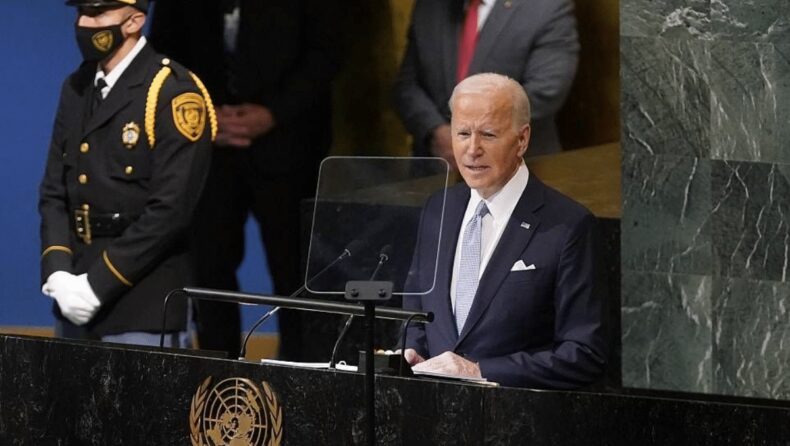US President Joe Biden reiterates US support for India, alongside Germany and Japan, giving a push to India’s bid for a permanent seat on the UN Security Council.
A senior White House official of US President Joe Biden’s administration reiterated that the US President supports the bid of India, Germany, and Japan to become permanent members of a reformed United Nations Security Council.
Additionally, the unnamed official stated that there is still much work to be done in this situation.
While responding to a question, the official told PTI that the US continues to “stand behind the idea that Germany, Japan, and India should be permanent members of the Security Council.”
US President Biden, in his speech to the UN General Assembly on Wednesday, reaffirmed his determination to reform the UN Security Council.
Furthermore, Biden argued that the US supported expanding the Council’s membership to include both permanent and non-permanent members in order to make the body more representative of the world today.
Speaking about the arbitrary use of the veto, Biden said that members of the UN Security Council, including the US, should only use the veto in exceptional and rare circumstances in order to maintain the Council’s credibility and effectiveness and consistently preserve and defend the UN Charter.

The last comment probably hinted at the arbitrary use of the veto by China and Russia to block resolutions that go against their national agendas, although the US comes second to Russia in the use of the veto.
UN Security Council and its composition
Ten non-permanent members and five permanent members make up the UN Security Council. The five permanent members of the UN Security Council, also known as the P5 nations—China, France, Russia, the UK, and the United States—have the power to veto any resolution proposed, thereby putting a stop to further discussion of the issue.

Permanent membership in the UN Security Council is an important position as the Council is the highest body of the UN that deals with major resolutions on events that shape the global stage.
A UN Security Council resolution that called for Moscow to immediately halt its invasion of Ukraine and withdraw all forces was vetoed by Russia, in February. Out of fifteen members of the Council, eleven voted in favor, while China, India, and the UAE abstained.
While India has gotten support from other permanent members regarding its candidature in an expanded UN Security Council, China continues to block India’s candidature.
In his prerecorded address to the UN General Assembly on Wednesday, Ukrainian President Volodymyr Zelenskyy also questioned why nations like his own, Brazil, Japan, and India weren’t permanent members of the Security Council.
“The day will come when this will be resolved,” said Zelenskyy.
India’s bid for UN Security Council seat
Recently, while speaking at Columbia University, New York, External Affairs Minister S Jaishankar said that UN Security Council reforms were not only good for India but also for the Council.
Jaishankar said that in a few years, India will have the third-largest economy in the world and the most populous society. So, it won’t be in our best interests if such a country is excluded from the council.

Furthermore, he underlined the fact that reform is long overdue as eighty years have passed and a number of independent countries have emerged since the UN came into being.
The UN Security Council remains an exclusive organization whose transformation to include more members is still a herculean task.
In addition, Jaishankar clarified that when he said, “I’m working on it,” he was being serious.
In July this year, during a response to a question in the Lok Sabha, Minister of State for External Affairs V Mualeedharan said, “In bilateral talks with the permanent members, four out of the five had officially confirmed support for the candidature of India in an expanded UN Security Council.”
He added that it was a matter of “high priority” for the government to get India’s permanent membership in an expanded UN Security Council.
India is part of the G4 nations—India, Japan, Brazil, and Germany—a group of like-minded countries that support reforms in the UN Security Council and back each other’s bid for permanent membership.
In opposition to reforms in the Council is an informal group of 40-odd countries, called the “Coffee Club,” which has been significant in stalling the reforms. Pakistan is a part of the group along with Italy, Australia, Canada, and South Korea, among others.
These nations’ opposition is motivated by a variety of factors, including bilateral disputes and the desire to prevent developing countries from becoming more powerful than those from which they receive aid.
Currently, India is a non-permanent member of the UN Security Council with its tenure lasting till this year. For India to become a permanent member, there must be a significant reform push in addition to political commitment as demonstrated by Jaishankar. The vocal support by US President Joe Biden alludes to the support it will get and the need to change an organization constituted a long time ago.













